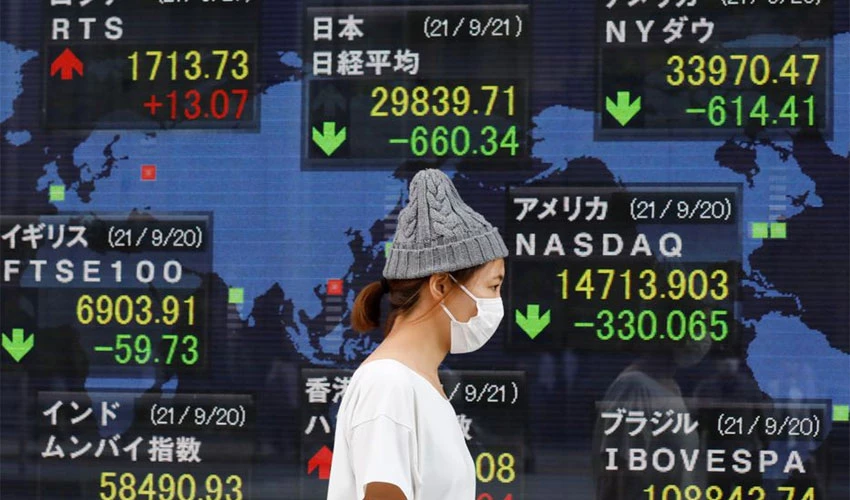Asian markets mixed as traders track Ukraine crisis

Hong Kong (AFP) - Asian markets were mixed Monday after last week's rally while oil prices extended gains, with investors keeping tabs on the Ukraine war as Turkey said Kyiv and Moscow were edging towards a ceasefire agreement.
Confidence remains at a premium owing to the crisis in eastern Europe -- which threatens to deal a hefty blow to the global economy -- as well as central bank monetary tightening measures.
Traders struggled to maintain the buying enthusiasm seen last week that was fuelled by bargain-buying and China's pledge to support beaten-down markets and indicated a crackdown on the tech sector was nearing an end.
Hopes for an end to the war were given a boost Sunday when authorities in Turkey, where Russian and Ukrainian representatives have been negotiating, said the two sides were close to a deal to stop the fighting.
Turkish presidential spokesman Ibrahim Kalin said the sides were negotiating six points: Ukraine's neutrality, disarmament and security guarantees, the so-called "de-Nazification", removal of obstacles on the use of the Russian language in Ukraine, the status of the breakaway Donbas region and the status of Crimea annexed by Russia in 2014.
Ukrainian President Volodymyr Zelensky also Sunday urged direct talks with Russian counterpart Vladimir Putin as the only way to end the war.
"Dialogue is the only way out," he said on CNN. "I think it's just the two of us, me and Putin, who can make an agreement on this."
After a healthy performance on Wall Street on Friday, Asia struggled to maintain momentum.
Hong Kong fell for a second day following the massive gains enjoyed on Wednesday and Thursday after Chinese authorities announced they would provide support to markets battered by recent volatility. But the lack of any plans as of Monday weighed on sentiment.
However, Cathay Pacific rose more than four percent after Hong Kong leader Carrie Lam unveiled plans to ease containment measures and lift a ban on fights from several countries including Britain and the United States.
Sydney, Seoul, Mumbai, Manila, Jakarta and Bangkok also slipped but Shanghai, Singapore, Taipei and Wellington edged up. Tokyo was closed for a holiday.
"Stabilising stock markets point to less cautious investors," said Stephen Innes of SPI Asset Management. "Not because views on geopolitical or policy/rates risk have improved but because price action shows a market more tolerant of those challenges."
Markets were sent into a tailspin when Russia invaded its neighbour almost a month ago, sending the price of commodities including oil, nickel and wheat soaring, putting further upward pressure on already high inflation.
The IMF, World Bank and other top world lenders, warned last week in a joint statement that the "entire global economy will feel the effects of the crisis through slower growth, trade disruptions and steeper inflation".
And the International Energy Agency said the planet faced the "biggest oil supply shock in decades" and urged governments to implement measures to cut global crude consumption within months.
The war has complicated moves by central banks -- particularly the Federal Reserve -- to wind down their pandemic-era financial support measures as they try to walk a fine line between reining in inflation and nurturing economic growth.
"Our concern is that the Fed is tightening into an economic slowdown as it prioritises high inflation," Sue Trinh, at Manulife Investment Management, told Bloomberg Television.
"We think it will balance that trade-off of slower growth, higher inflation by lagging the market pricing in terms of the pace, the magnitude and the duration of this tightening cycle."







